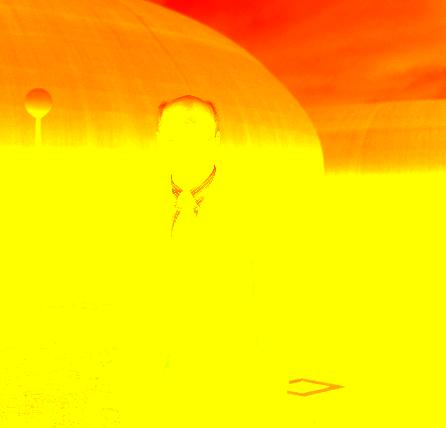
3 minute read
The miracle from the tap
It is so matter-of-course. Every day I turn on the tap and I use water for all kinds of different things. For instance to have a good drink after sports activities, and also for taking a shower, cooking and cleaning (yes, I also do my chores!). All these are daily activities.
And I often do it unwittingly. You as well I presume? We simply don’t realise that clean water from the tap is really something very special. Only when we visit other, often faraway, countries, do we ask ourselves whether the tap water there is drinkable. Or we discover that tap water is only available for several hours a day. In the Netherlands we never ask ourselves these questions. Where does that trust in Dutch water come from? Is it because it always works well? Or is something else happening?
Let it be clear: the water companies in the Netherlands are proud of this matter-of-factness and this (implicit) trust in their product. But how do they ensure day after day that this trust is not put to shame? First there are the drinking water standards of the public sector. They are the strictest in the world. And this for a country that is situated in the ‘tip’ of the Rhine and Maas basins. The Pays Bas, you know ....
For the water companies it starts with checking the quality of the raw material: the raw ground or surface water. The companies using river water already measure the quality of it a good distance upstream. They could then take action within due time if something appears to be wrong. For those cases they have arranged for a stock of clean water. Also during purification and when the water leaves the factory, the quality is followed meticulously. Innovative and sound purification methods are applied to that whole process. Pure water has already been produced in this way for several years without adding chlorine. Afterwards, measurements are also taken from the distribution network. After all, water is a ‘living’ product and the interaction with the pipework can affect the end product. So it is important to keep a close eye on this. And finally, quality measurements are even taken in people’s homes. I will give just a few figures of the company in which I am privileged to be Chairman of the Supervisory Board: it is Evides Waterbedrijf, the second largest water company in the Netherlands serving the south-west of our country. Over 200 online measurements are taken from Evides’ catchment and production process. This means that the quality of over 200 substances and locations are measured ‘live’ 24 hours a day. This relates to the properly measurable parameters. If there are deviations from the required situation immediate action can be taken. This often happens automatically. With regard to more complicated measurements the water laboratory will spring into action. The lab, in this case Aqualab-Zuid - carries out approx. 3000 analyses per week for Evides, even during the weekend. These measurements are taken with highly advanced and expensive equipment. It is not without reason that the water companies in the Netherlands scaled up their knowledge and skill in measurements to four professional large water laboratories.
As the customer trusts Evides so Evides trusts the laboratory. But that trust is not a matter of course. Evides wants the laboratory to meet the strictest standards. This covers the quality of the staff, the equipment and the measurements but also the quality of the sampling up to and including the correct transport of the samples. These requirements are laid down by law. Each year the lab has to prove that it works according to these standards. This is done via the RvA accreditation. Evides stipulated in the contract with the laboratory that the lab must have this certificate.
Therefore water is the best tested food we ingest each day. The accreditation is a major link in this connection. And that is why I turn on the tap each day with (implicit) trust and matter-of-factness. Cheers!
Anton van Loon is the Director of the BMWT, the sector organisation for manufacturers and importers of construction machinery and material handling equipment. The BMWT is involved in a large number of certified safety processes such as the BMWT-Keur quality mark and the Piek-Keur quality mark.
After studying engineering and didactics he has been active as a steel constructor, a consultant and in several administrative functions. In 1992 he became employed by the BMWT.
Anton van Loon advises the Board of the BMWT about safety systems. Moreover, he manages the existing certification schedules, he is for instance a member of the board of experts in the demolition sector and the Foundation for Supervisory Certification of Vertical Transport (Stichting Toezicht Certificatie Verticaal Transport: ‘TCVT’). He is also a member of the jury for granting the Award for the Safest Warehouse, the Chairman of the Piek-Keur foundation and of several other bodies.



